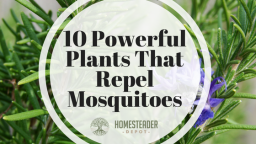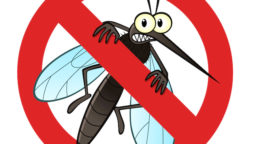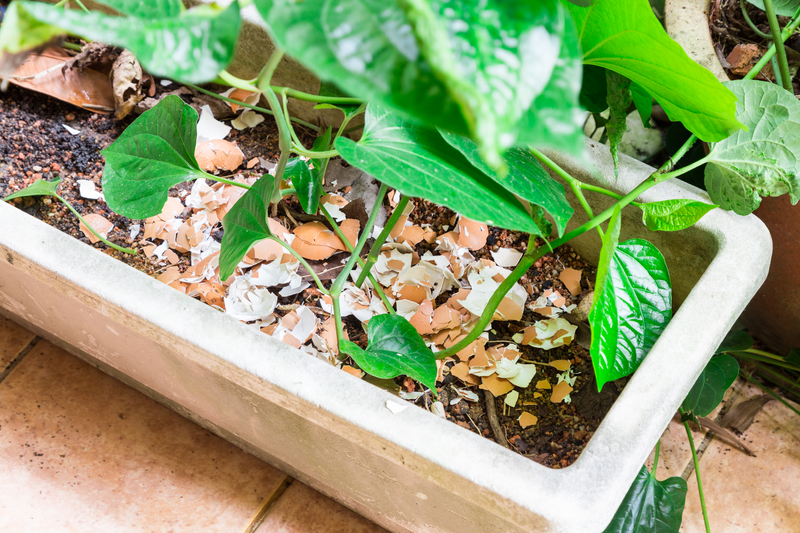While I’m thrilled for warm weather to finally return, I’m not as excited about the flying pests that come with it. As spring marches on and the land is replenished with rainfall, potential hotspots for mosquitoes are developing. In addition to checking your property for areas where water is allowed to pool (your mosquitoes will use these as their own personal birthing centers), you can take safe steps to prevent infestation with these naturally-repellent plants!
- Citronella Grass/Lemongrass is the source of citronella oil that is used in many commercial insect repellent products like citronella candles and tiki torches. It can be grown just about anywhere in North America, but expect it to die off during the winter unless you live in USDA climate zones 10-12. Citronella grass grows best in full sun, requires lots of water and can grow 5-6 ft tall.
- African or French Marigolds have a very strong aroma that is pleasing to people but off-putting to bothersome bugs! They’re great for repelling garden pests, but you can also plant or pot them around your home or patio to keep mosquitoes at bay. The African marigold is the bigger of the two and can reach heights of 30 to 40 inches. Their gorgeous blooms feature different shades of yellow and orange. The French marigold only gets to be 6 to 24 inches tall but is much more colorful with the added shades of deep brown and crimson. All marigolds need full sun and do best in well-drained, moderately fertile soil.
- Basil, a member of the mint family, is a popular culinary herb in Italian cuisine. One small basil plant may not have the repellent power of an African Marigold, but planting several basil stalks for culinary use will have the added benefit of driving away mosquitoes. Basil’s many hardy varieties prefer full sun and can be grown in containers or in the ground.
- Lemon Thyme is quite promising in terms of its repellant potency. In a study done by the University of Guelph in Ontario, they found that the crushed leaves of lemon thyme had 62% of the repellency of DEET. Lemon thyme is very easy to grow, needing only partial or full sun, occasional pruning, and enough water to keep from dehydration in climate zones 5 and up.
- Catnip is a perennial herb and feline favorite. While it may attract your cats (or your neighbor’s!) researchers have found that it has the opposite effect on not one but two nasty little bugs: the mosquito and the cockroach. In fact, they found that one of catnip’s essential oil constituents, Nepetalactone, has roughly ten times more mosquito repellency than DEET. Catnip is a hardy herb, but it requires plenty of water, sun, and a bit of pruning to thrive.
- Sage is yet another herb that offers its services as a multi-insect repellant. Mosquitoes, flies, cabbage moths, and black flea beetles all keep their distance from sage plants. This perennial likes full sun with well-drained soil does well in pots or gardens and grows to be about 18 inches tall.
- Pennyroyal is known mostly as an ancient culinary herb and herbal remedy, but it has a bit of a bad reputation because its essential oil is highly toxic. Consider whether you have pets or small children that may pick a leaf to nibble on while exploring outside. Pennyroyal really packs a punch when it comes to repelling insects–fleas, ticks, and mosquitoes, the terrors of outdoor living, all stay away from Pennyroyal. The plant grows to about 12 inches tall and is best grown in partial-to-full sun in zones 5-9.
- Rosemary is an aromatic evergreen sub-shrub that is used in culinary seasonings and herbal remedies. It is commonly known to repel fleas and mosquitoes. Rosemary grows best in hardiness zones 7 to 10 and prefers full sun and dry, rocky, well-drained soil. Rosemary starts off small, but can spread and grow to 6 feet tall or more over time!
- Geraniums (sometimes called citronella or mosquito plants) are often sold in garden centers as natural repellants. While lemongrass is the true source of citronella oil, geraniums still do a great job keeping mosquitoes, cabbage worms, and Japanese beetles out of your space. Geraniums thrive in climate zones 9 to 11 but can be grown in pots and moved inside in colder climates. Like pennyroyal, the geranium plant is poisonous, so exercise caution with pets and small children.
- Lavender is a beautiful plant with many uses in aromatherapy, herbal remedies and repelling spiders and unwanted insects such as ants and moths. As a herbal remedy, it can alleviate the pain and itching associated with all types of insect bites including mosquitoes. Lavender is typically used as an essential oil but can be used as fresh or dried cuttings. Lavender grows happily in climate zones 4 to 9 but can be kept indoors in extreme north or south locations.
This year, be prepared! Don’t become a slave to sticky, toxic bug sprays and calamine lotion. Plant any (or all) of these natural repellants around your home, patio, and garden to enjoy your outdoor space freely all summer long.




